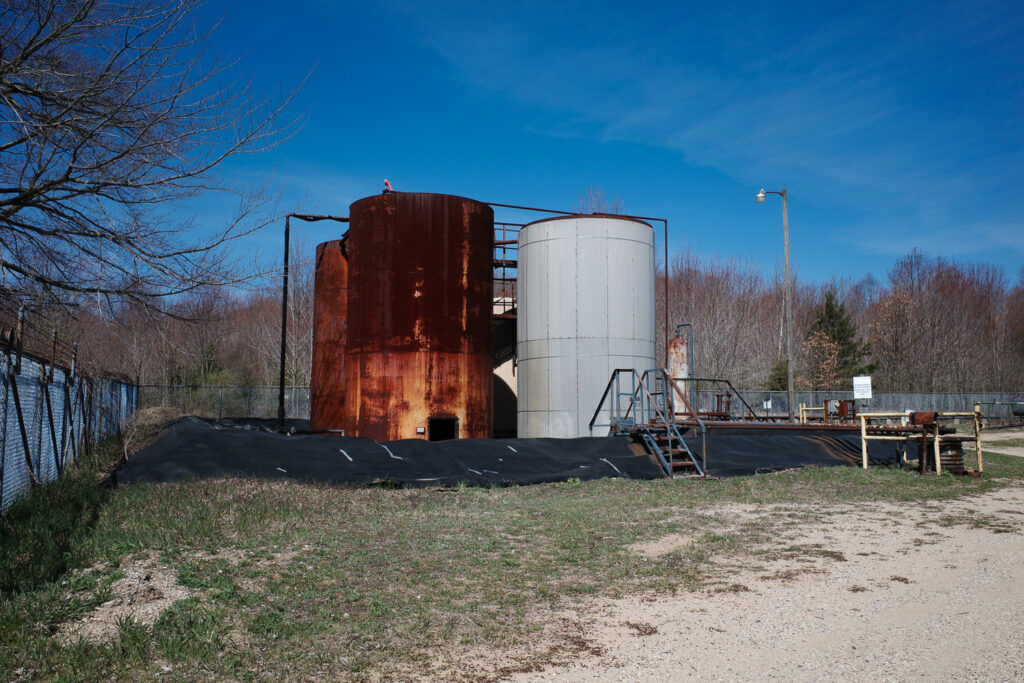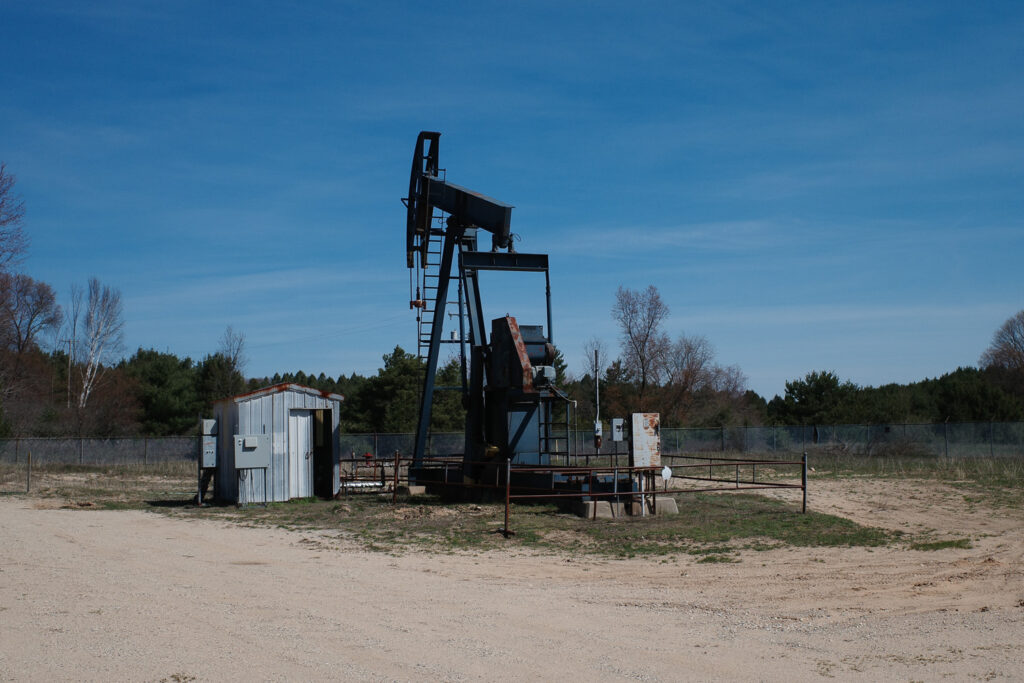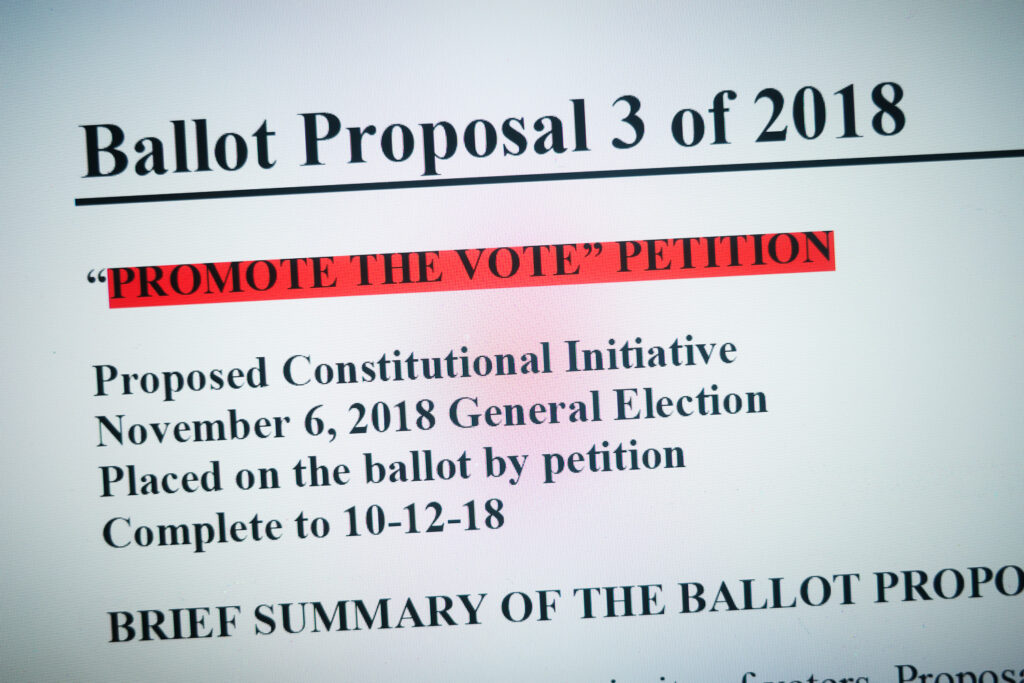Michigan, under Gov. Gretchen Whitmer, is waging a war on the oil industry. Tanks at the ready, armed troops storming and seizing the oil fields. Pride flags raised atop the wrecked oil rigs like Iwo Jima. Solar panels and wind turbines installed in their place to rancorous, state-mandated applause. Please clap—or your name is going on a list.
Just kidding. They’re just doing it with lawyers. Sigh. This isn’t the cyberpunk future I signed up for.
There are two new measures from the state government: One, a lawsuit. The other, a new law.
Michigan Attorney General Dana Nessel in May announced the state’s intention to sue the oil and gas industry (no specific companies defined) for climate change impacts. She made a statement that, “Our ‘Pure Michigan’ identity is under threat from the effects of climate change.” Further declaring that, “The fossil fuel industry… prioritized profits over people and the environment. Pursuing this litigation will allow us to recoup our costs and hold those responsible for jeopardizing Michigan’s economic future and way of life accountable.”
The irony being, of course, that Nessel’s proposed lawsuit itself jeopardizes Michigan’s current economic reality in a concrete way. This is a far more immediate concern than the ever-shifting, nebulous, and impossible-to-define effects of climate change.

Michigan may not be Texas, but Michigan oil is still a huge deal when you look at the real impact. The state’s oil and gas industry directly, or indirectly, supports 228,000 jobs. It contributes over $30 billion to the state economy, roughly 4.5% of the state’s entire GDP. It supports initiatives like the Michigan Natural Resources Trust Fund, which generates hundreds of millions of dollars for Michigan’s park systems.
Yet, Michigan oil rigs skew small, with many paying out directly to private individuals and families, and are often themselves owned and run by small businesses. The narrative that Michigan oil is big oil, some evil conglomerate preying on the state, is nonsense. Otsego County, Michigan’s highest oil-producing county, produced 41,000 barrels of crude oil in July 2024, with dozens of producers accounting for this total. Texas’s highest oil-producing county, for comparison, produced over 19 million barrels that month.
Michigan’s business community has spoken out vociferously against this lawsuit. A consortium of pro-business Michigan groups released an open letter denouncing Nessel’s plan. “This dangerous and inappropriate use of a state office to attack and demonize Michigan businesses would have a negative and chilling effect on the state’s entire economy,” they stated. Reflecting on the stark reality of the situation, they said, “Every business and household in this state relies upon access to affordable and reliable energy.” Nessel’s proposed lawsuit would damage every aspect of the state’s economy.

All, in the end, to enrich a select few. Nessel’s proposed lawsuit isn’t a direct lawsuit by the state. She hired three outside law firms to run the suit—one of them, Sher Edling, has been prominently involved in over a dozen similar lawsuits, and has received approximately $13 million in funding from major left-wing organizations to continue its efforts. This suit promises to enrich these law firms significantly, with each receiving a percentage of the overall damages, millions of dollars at the very least.
It isn’t hard to see this for what it really is, a way for some lawyer pals of the state Democratic party to get rich off a virtuous-sounding cause, with the full weight of the state government backing them. Considering the state of judicial activism in Michigan, one can’t imagine the lawsuit failing either. All it takes is one spurious judge to decide a hefty payday for the state, and most importantly, the lawyers.

Gov. Whitmer is also waging her own war on the oil industry. She recently signed into law a “Clean Energy & Climate Action Package” mandating, among other things, a 100% switch to clean energy by 2040. By 2035, even, Michigan energy providers must employ a 60% renewable energy portfolio.
The law draws some distinctions between “clean” and “renewable” energy. Renewable energy generation includes things like solar, wind, and hydro-electric. Clean energy generation can include methods like nuclear power and ultra-efficient natural gas with 90%+ carbon capture.
Only 12% of current state energy sources classify as renewable—this legislation mandates an extraordinary shift, including the very expensive closure of plants and investment in new ones. This law mandates a radical, expensive, and destructive shift for the state’s entire energy production base.
Shutting down even a single plant, such as the coal-powered Monroe Power Plant, is slated to cost taxpayers an estimated $4 billion. A mandated shift to clean energy will cost countless billions more.
Whitmer’s law is a rushed, expensive headache proposing to undermine the state’s economy. It’s not entirely virtuous either, even if you believe the climate-change narratives. The law was written specifically to take advantage of the Inflation Reduction Act, which promised $5.3 billion in federal funding over the next two decades, more than double what the state might have received previously. Suckling at the federal teat, as always.
Look, even if you believe the most stringent claims of the climate change crowd, frivolous lawsuits and energy production mandates are not a reasonable way to achieve a shift in energy production. This funding, this effort, even a portion of it, would be better served advancing research and manufacturing of novel energy production methods.
The American way is not to mandate, it’s to innovate. Fuel a true energy innovation, and the results will pay untold dividends. When more efficient, more productive, cleaner methods make economic sense, that will force a switch. Until then, these initiatives are just grifts for lawyers and politicians to enrich and advance themselves.
Bobby Mars is an artist, alter ego, and former art professor. Follow him on X @bobby_on_mars.



